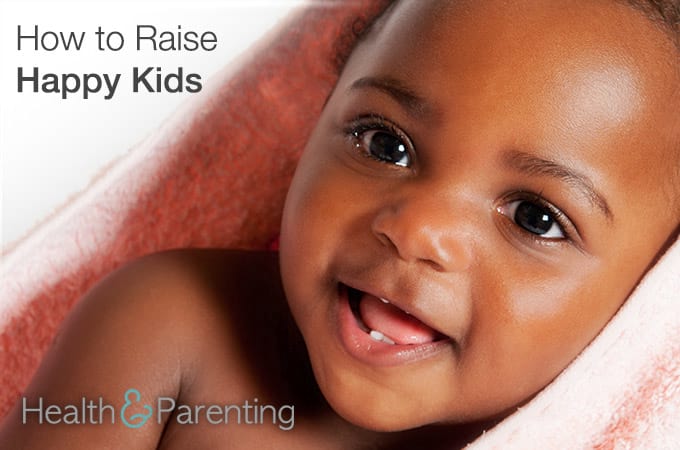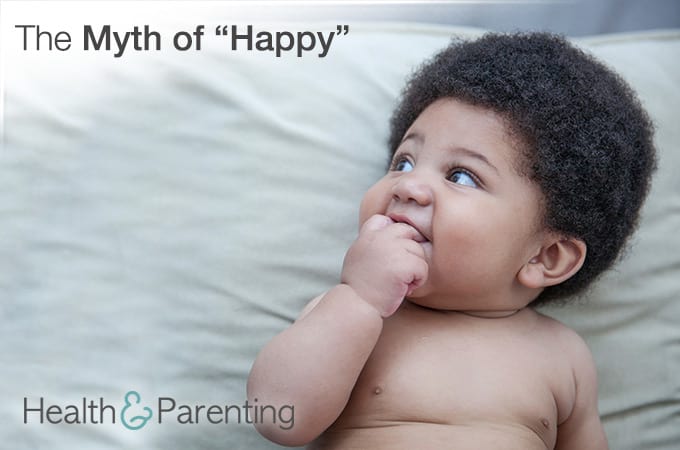There’s probably a long list of things you want for your child. You want him to grow up and do something extraordinary, to find somebody who truly loves him and to find an occupation he enjoys. But what you want above all else, is for him to be happy. You want him to be completely and utterly happy. You want him to feel loved and supported at every turn. But what can you do to increase the likelihood of your baby growing up into a happy person? Here are five simple things you can do to raise happy kids:
- Be happy
This one might sound a bit obvious, but children are hugely influenced by their parents. If you want your child to grow up with a sunny disposition, you need to start focusing on the bright side of life now. Model the behavior you hope your children will inherit. That means you need to become a glass half full kind of person. Focus on the positives, look for solutions instead of letting stress get you down and find joy in the smaller things in life.
- Be nurturing
Some parents think that by letting their kids toughen up a little, they’re preparing them for the real world. In actual fact, the people who cope better with the ups and downs of adult life are those who felt completely nurtured and supported during childhood. You cannot cuddle your baby too much, spend too long soothing your toddler’s tears or help your child to problem solve too many times. Whilst being supportive, you can gently encourage your child to solve his own problems, but holding his hand the whole way will help him to deal with problems better in adulthood.
- Focus on effort
Everything your child does is amazing, obviously, but it’s best to keep that to yourself for now. Whilst you may think those brown splodges on the paper are the most artistic and amazing brush strokes the world has ever seen, you won’t be doing your child any favors by telling him that. Instead, focus on the effort he put into the picture, not the eventual outcome. Congratulate your child for working hard, for putting in effort and for being creative. Don’t tell him his picture is amazing or that he’s really clever, instead, focus on the work he’s putting in. Why? Because this will help him to learn that he’ll sometimes have to work hard and that there’s nothing wrong with that.
- Free play
Kids need to engage in free play. They need time away from the scheduling and rules of classes, clubs and groups. They need to be able to climb trees, run wild and get dirty. Why? Because that’s how kids play. And kids learn through play. All of that time spent in the garden may look like fun, but your child is working hard to develop new skills and learning the whole time. Stand back and let your child decide what and how he plays. Let him take appropriate risks, make his own mistakes and solve simple problems for himself.
- Be respectful
Want your kid to feel like an important part of the family? Then treat him like one. He may be little, but he can still make choices. With your baby, you can ask before picking him up. He’ll soon learn how to let you know he doesn’t want to be moved right now. With a toddler, let him choose what he wears each day (you can offer a choice of two pre-selected outfits if the thought of a toddler-sized fashion stylist is too much for you to handle). For your older children, let them choose what you do on the weekends or what they want for dinner. If you treat your child with respect, your child will learn to treat others with respect. Not only that, but your child will feel like an important and equal part of the family.
Written by Fiona (@Fiona_Peacock), mother, writer and lover of all things baby related.
This information is not intended to replace the advice of a trained medical doctor. Health & Parenting Ltd disclaims any liability for the decisions you make based on this information, which is provided to you on a general information basis only and not as a substitute for personalized medical advice. All contents copyright © Health & Parenting Ltd 2016. All rights reserved.











